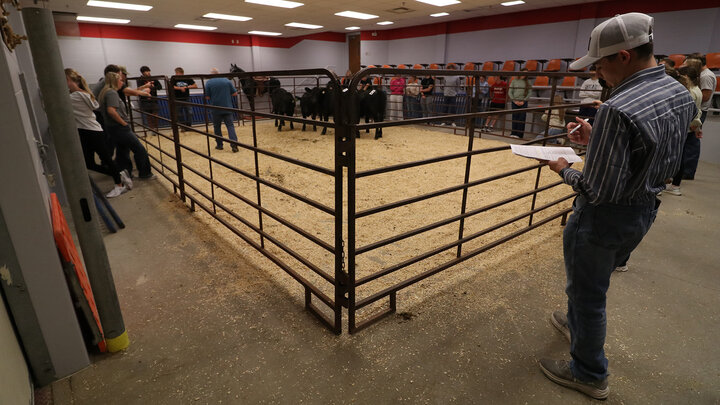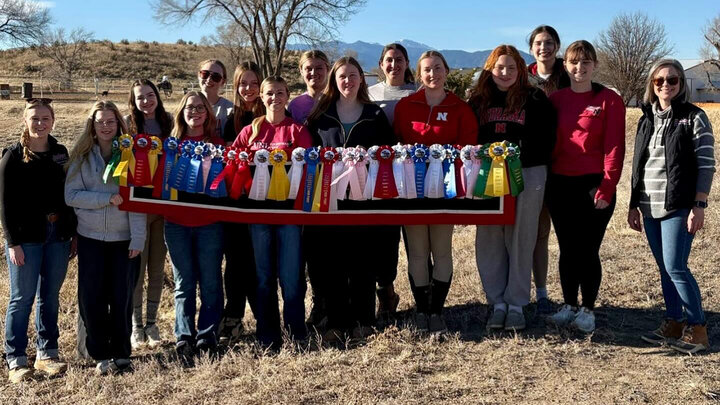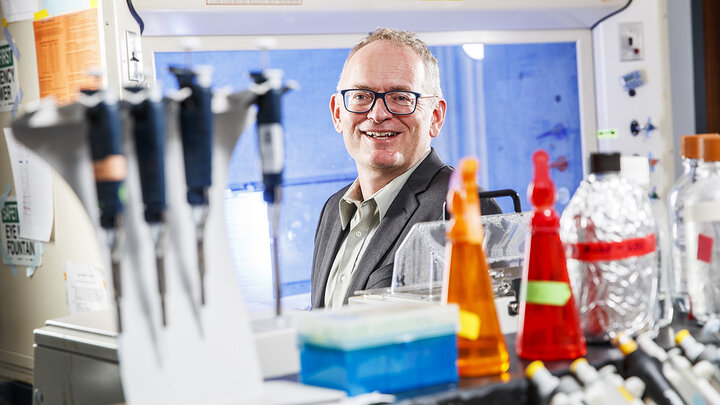Dr. Terry Mader, an emeritus professor in Animal Science, was recently elected to the Plains Nutrition Council's Legends of Feedlot Nutrition.
Established in 2016, the Legends of Feedlot Nutrition's purpose is to honor, recognize and memorialize those who have contributed to and who have had a profound and lasting impact on the feedlot industry as it relates to innovation, leadership, advancement, service, and education in the area of feedlot nutrition in the areas of consulting, academia/extension, or allied industry. Emeritus professor Dr. Terry Klopfenstein was elected in 2018.
During his academic career, Dr. Mader developed an internationally recognized research and outreach program addressing problems and concerns affecting the feedlot industry, including implant/growth promoting strategies, feed resource and facilities management, and managing environmental stress. Early efforts were devoted to developing birth to slaughter growth promoting strategies, which matched product dosage/potency to the animals’ stage of production. Research efforts evolved into assessing the interaction of growth promotant and season (heat vs cold) of the year. Additional studies were pursued, including effects of dietary components, feed additives, facilities management, and pen surface conditions on animal comfort/discomfort under hot and cold environmental conditions. Research demonstrated that increasing fiber level in high concentrate feedlot diets actually lowers body temperature under heat stress, due to poor fiber digestion. Also, recently published data demonstrated a high correlation between feedlot soil temperatures and cattle water consumption (winter and summer). Among seasons pen surface temperature and/or conditions appear to be a better indicator of stress and discomfort than many weather parameters. As a result of these research efforts, Dr. Mader was instrumental in developing a comprehensive environmental stress index that encompasses a range of temperatures from >120 degrees F to < -40 degrees F for domestic food animals (primarily cattle). The index adjusts ambient temperatures for relative humidity, wind speed, and solar radiation. The index is useful for tracking acclimation rate, stress level, and energy requirements as animals move from season to season and are exposed to adverse weather events. In addition, the model can aid in identifying emergency preparedness protocols, which might need to be considered when catastrophic environmental events occur.
Dr. Mader’s current activities include involvement in national and international projects studying and mitigating environmental effects on animal productivity. He is past-Chairman of the FASS Beef Cattle sub-committee on the Guide for Care of Agricultural Animals, past Chairman of the Professional Animal Auditors Certification Organization and has been an active member of the American Registry of Professional Animal Scientists. Previously, Dr. Mader was a recipient of the American Society of Animal Science Animal Management Award, an honorary professor of Animal Production at the University of Queensland in Australia, and OSU-Advanced Degree Graduate of Distinction Award. He is author or co-author of over 400 scientific publications. Dr. Mader has been Head of Mader Consulting, a business entity devoted to the implementation of ethical animal welfare and sustainable production practices as well as development of management strategies to minimize environmental stress and effects of climate variability on livestock.




